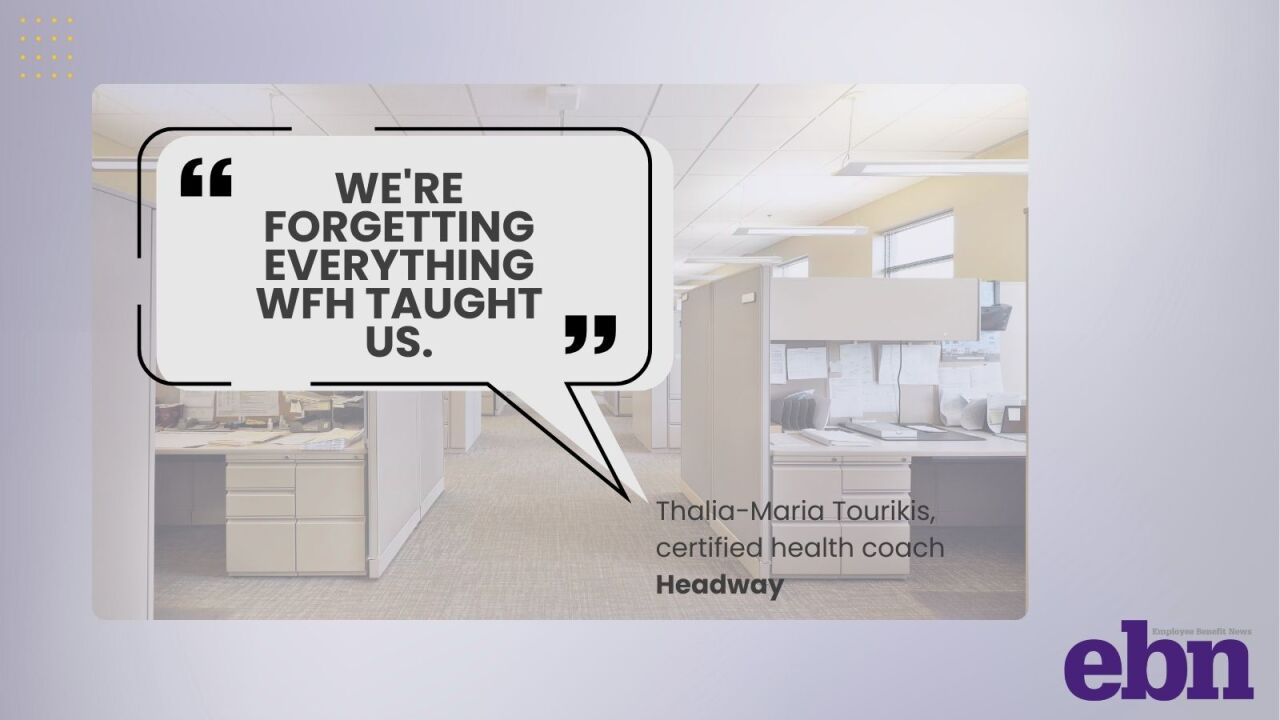What’s the saying about it never raining but pouring? Multiple reports on the value of teleworking, flexible scheduling and so-called ‘soft’ benefits have caught my eye recently.
The first is from employee engagement firm TINYpulse, which surveyed 509 U.S. employees who work remotely 100% of the time. These workers, on a scale of one to 10, reported an average work-happiness level of 8.1, compared to 7.4 for other employees. And 91% of these remote workers said they are more productive when working remotely.
“Employers should stop worrying whether remote workers are being productive — our poll and others have found that they are,” Dora Wang, managing editor of the TINYpulse Institute told EBN Executive Editor Kathryn Mayer when she reported on this story for benefitnews.com.

I can definitely relate. As someone who also works remotely all of the time – and has done so for the better part of 15 years – I get tired of defending my very real workload to those who like to believe (and aren’t shy about saying) I lounge around all day in my pjs. (Now, that’s not to say I haven’t, on occasion, used the excuse of scrubbing my toilet to postpone editing a particularly long-winded piece on, say, the Affordable Care Act. But how is that any different than the employee who takes an extra-long lunch break or checks Facebook on their phone to avoid dealing with a vexing project?)
The second piece comes from PricewaterhouseCoopers and compares, in part, the happiness levels of workers at small and large companies. The report surmises that workers at small businesses report much higher rates of happiness with their jobs because they enjoy more autonomy and less structure. Eighty-six percent of large-company employees want to work from home once a week, yet only 26% do, according to the report.
And, finally, in another story on benefitnews.com, David Batman, chief medical officer at Global Corporate Challenge tells reporter Caroline Spiezio that “it’s time to stop seeing psychological health issues – and happiness within that – as a nice-to-have. It impacts business metrics and employers who harness it reap the benefits.”
Benefit professionals play a vital role in creating thriving workplace cultures – ones that are flexible, trusting and treat employees like the grown-ups that they are. And a strong workplace culture, in my view, is just as valuable to companies’ retention efforts as health and retirement benefits.
But no matter the culture, there comes a time when employees do move on. And that time has arrived for me. I’m leaving EBN to take a job with a major insurance company. As much as this new opportunity excites me, I’m sad to be leaving my team that works so hard every day to bring you content aimed at helping you do your jobs better. I couldn’t have done this job without them; thank you. And I am grateful to all of the sources – benefit executives, consultants, brokers, wellness vendors, retirement plan recordkeepers, business groups and professional organizations – for sharing their insights and expertise with me over the years. Thank you for allowing me to cover your industry.
Andrea Davis’ last day at EBN was June 24. Please send letters, queries and story ideas to Executive Editor Kathryn Mayer at





